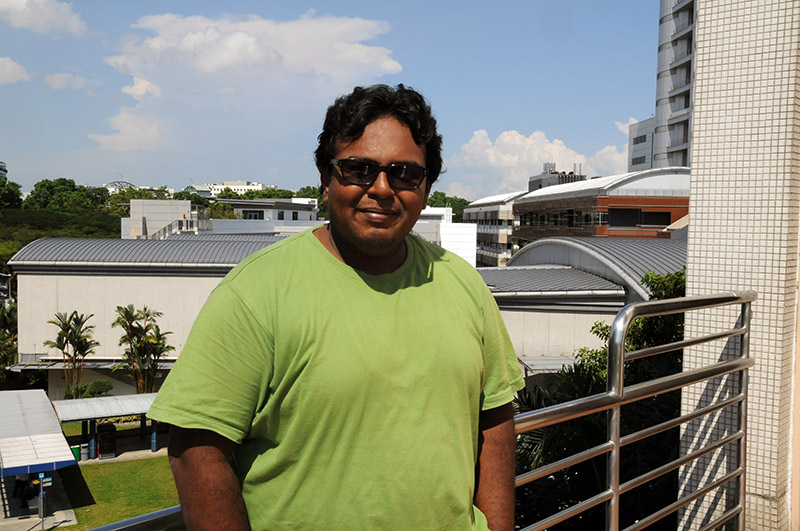Highlights
Meet a CQTian: Debashis De Munshi

Debashis joined CQT as a PhD student in 2012. He had shown early signs of being a scientist. As a kid, he says, he did things like "mix up medicines that I'd apply to plants and try to build a model ram-jet engine."
Who are you and where are you from?
I'm Debashis De Munshi from Calcutta in West Bengal, India — the same place where Satyendra Nath Bose, who gave his name to 'boson' particles, did his work on quantum mechanics. I'm 27.
How did you end up at CQT?
I was working with Manas Mukherjee in Calcutta. When he shifted here to become a PI, I moved too. It wasn't a big decision, though one thing I did before moving was get married.
What is your research about?
In classical mechanics, if a ball goes around a circle and comes back, it's still just the same ball, but in quantum mechanics if a ball goes around and comes back, it's a ball and something else. This something else is termed geometric phase. My goal is studying the behaviour of this geometric phase. There are lots of proposals for using geometric phase for quantum computation. I come at it more with the interest of seeing something that is abstract manifest itself in real life.
Being an experimentalist, you are very grounded in real life...
Yes, most days I'm soldering wires, making circuits, tightening blots, aligning lasers and so on. Individually the things are really basic but when they're all combined, they can give rise to something that is very beautiful. We just have to keep reminding ourselves of our goals. We've been setting up our experiment since we arrived at CQT in February 2012. Hopefully we'll have the basic system running by the middle of 2013.
What do you enjoy about being a scientist?
When I was a kid, I had a small lab where I did things like mix up medicines that I'd apply to plants and try to build a model ram-jet engine. I was always very curious about things, and that is what has led me here. So now research is kind of a part of my life: doing research no longer feels like doing a job, rather when I go home I feel like I'm doing a job.
What about life outside the lab?
I have a huge range of interests — in other branches of science, in politics, in economics. I also swim, play piano and have my family. One of the surprising things I've found out since marriage is that having a personal life has helped me at work: the total time of work has reduced, but the efficiency has improved. When I go home in the evening I know I have a nice person to talk to, and when I come in the morning I'm fresh.
Have you done any interesting travel from Singapore?
Last year I went to Dunhuang in China, in the middle of the desert. I was a presenting a poster at a conference about quantum stuff. There I was kind of forced to learn to eat with chopsticks. Thank goodness I'd tried a couple of times before that in Singapore because in Dunhuang there was no other option.






